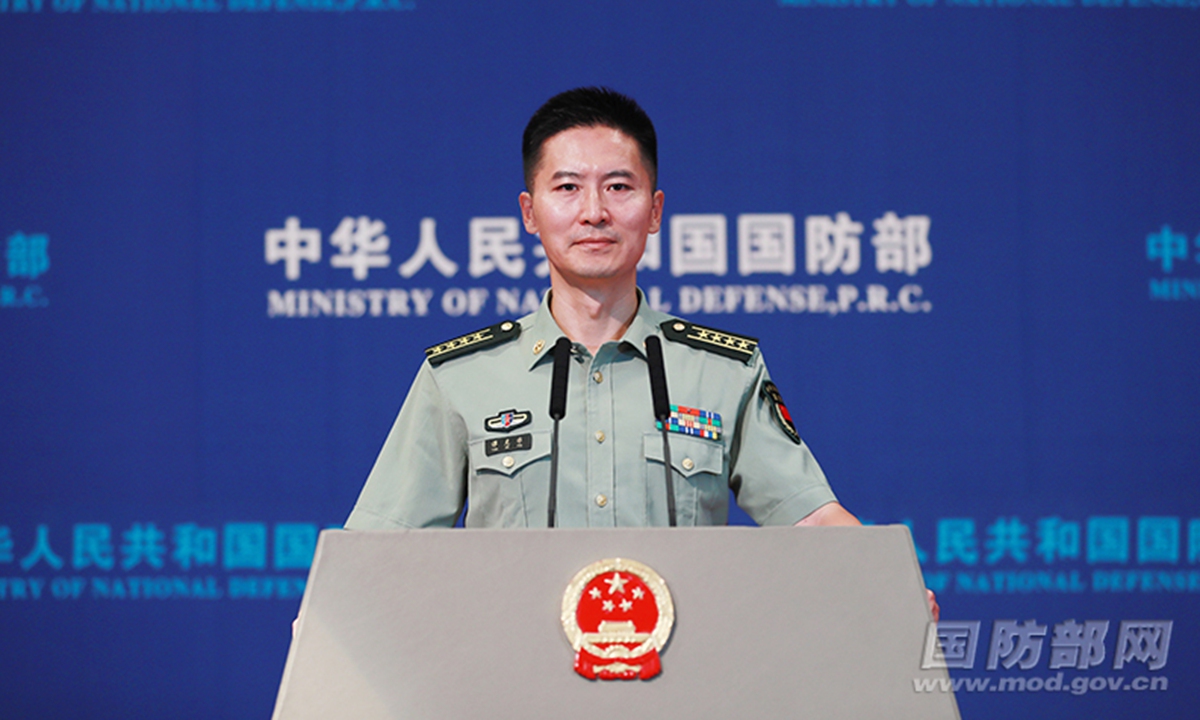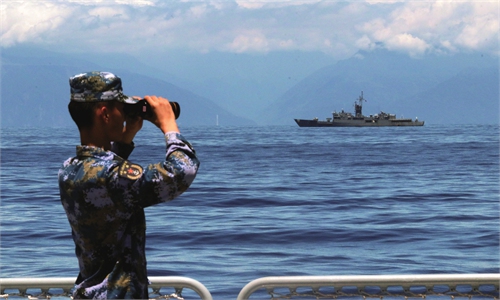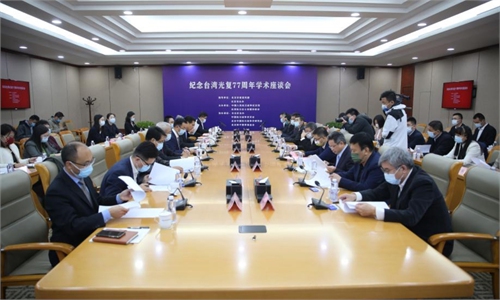Defense ministry urges Japan to honor political commitments, refrain from interfering in Taiwan question as Tokyo eyes revising national security strategy

Tan Kefei Photo:mod.gov.cn
China's Ministry of National Defense on Thursday urged Japan to honor its political commitments, refrain from interfering in the Taiwan question, and stop playing up the so-called China military threat after the Japanese government was reported to be considering hyping the Taiwan question in its National Security Strategy, which is likely to be revised by the end of 2022.Senior Colonel Tan Kefei, spokesperson for the ministry, said at a regular press conference on Thursday that for some time, Japan has deliberately hyped up China-related issues like the Taiwan question, grossly interfered in China's internal affairs, and played up the so-called China military threat, which is irresponsible and has ulterior motives.
According to Kyodo News, the Japanese government is considering revising its National Security Strategy by the end of 2022, which will mention that "no unilateral change of the status quo by force will be tolerated" in the Taiwan region, and may introduce policies highlighting the "free and open Indo-Pacific" concept and the "Quad" framework involving Japan, the US, Australia and India.
In response to that, Tan said that both sides of the Taiwan Straits belong to one and the same China, and the island of Taiwan is an inalienable part of China. The Japanese side made solemn commitments in the China-Japan Joint Declaration signed 50 years ago, Tan said. The Japanese government recognizes that the government of the People's Republic of China is the sole legal government of China. The government of the People's Republic of China reiterates that Taiwan is an inalienable part of the territory of the People's Republic of China. The Japanese government fully understands and respects this stand of the government of the People's Republic of China, and it firmly maintains its stand under Article 8 of the Potsdam Proclamation, Tan reiterated.
Tan stressed that Japan should abide by the basic norms of international relations, and fulfill its serious political commitments to China, instead of interfering in the Taiwan question. It must be noted that in recent years Japan has been keen to follow other countries' policies of containing China, and has established targeted "cliques" in the name of "freedom and opening up." These moves have gone against the common expectations of regional countries for peace, development and cooperation, Tan said.
The spokesperson mentioned that this year marks the 50th anniversary of the normalization of China-Japan diplomatic relations. Japan should review its original aspirations and move toward China to implement the important consensus of "being each other's cooperative partners, not threats," so as to promote bilateral relations along the right track.
"We urge Japan to take history as a mirror, act cautiously in the field of military security, and refrain from interfering in China's internal affairs, undermining China's security interests, or undermining regional security and stability," he noted.
Japan's recent moves concerning the Taiwan question and other China-related issues have cast a shadow on its relations with China, said Da Zhigang, director of the Institute of Northeast Asian Studies at Heilongjiang Provincial Academy of Social Sciences. This has also, to some extent, worsened the relationship and momentum of future cooperation between the two countries, Da told the Global Times on Thursday.
Japan's provocations on the Taiwan question also will harm its own geopolitical interests and long-term development. Bilateral economic cooperation is likely to be affected and regional instability and other factors will become obstacles to Japan's development in the long run, Da said.
Officials, scholars and representatives from across the Taiwan Straits expressed firm defense of the one-China principle and full confidence in realizing national reunification and rejuvenation at a October 25 symposium held to commemorate the 77th anniversary of the recovery of Taiwan from Japanese occupation.
"Taiwan's restoration was the result of the common fight against Japanese occupation of people across the Taiwan Straits. It showed that Taiwan people have the tradition of patriotism and that the island's prospects and its people's well-being lie in national reunification,"Yang Yizhou, the deputy head of the All-China Federation of Taiwan Compatriots, said at the symposium, which was held at the Museum of the War of Chinese People's Resistance Against Japanese Aggression.
The true meaning of commemorating the island's recovery from Japanese occupation is to prove to the world that Taiwan's territorial sovereignty belongs to China and people in the region are Chinese people, Yang said.




